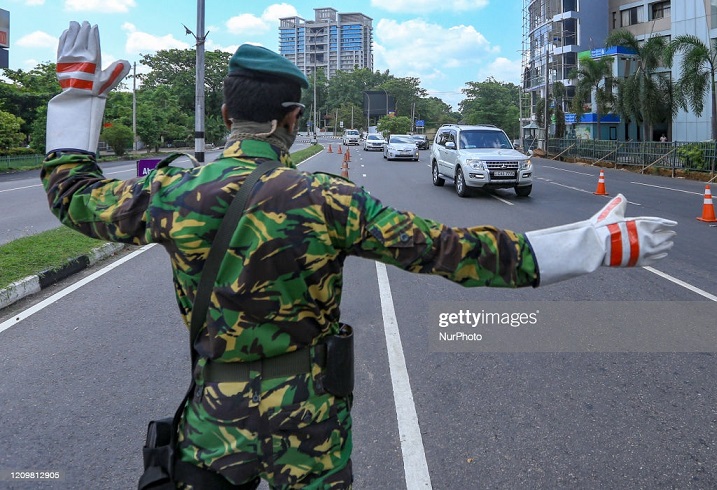Since independence, Sri Lankans have enjoyed a relatively high degree of democratic rights and freedom. From time to time, however governments of various hues and shades have usurped these rights via the use of Emergency Regulations. Under emergency rule the freedom to protest, press freedom and other rights, including democratic rights, which we take for granted, are suspended. Using emergency law, the state has also taken the lives of large numbers of civilians as was seen in 1971, 1989 and during the civil war of 1983 to 2009.
Just prior to independence in 1947, the British colonial rulers shot and killed Kandasamy, a striking member of the Government Clerical Services Union (GCSU). Workers were demanding recognition of trade union rights.
DS Senanayake, the then Leader of the House backed the colonial powers of the day, said ‘Public servants should not, under any circumstance hold political rights and that the state will never officially recognise the trade unions’ (Times of Ceylon-Jan 26, 1947/ dailynews.lk/2017/11/29)
Sadly, the post-independent governments have continued using emergency rule, not to protect the civilian population, but as a means to crush civilian protests and demands for wages to keep pace with the ever-increasing cost of living (COL).
An example of this was the use of emergency law to crush the general strike of 1980. Workers were demanding a rise in wages of Rs. 10/- per day in the face of the sky-rocketing cost of living. The then president declared an island-wide state of emergency, imposed news censorship and sacked over 40,350 workers who participated in the strike.
In 1983, in the aftermath of the government pogrom against the Tamil community, the then government after falsely accusing Marxist parties of involvement in the violence, used powers based on emergency laws to arrest the leadership of the Janatha Vimukthi Peramuna (JVP) other Marxist parties and impose press censorship (THE MASSACRES IN SRI LANKA DURING THE BLACK JULY RIOTS OF 1983 – May 13, 2008, Sciences Po)
During the civil war between 1983 to 2009, when government forces defeated the Liberation Tigers of Tamil Eelam (LTTE) – the terrorist outfit which claimed to be the sole representatives of the Tamil people on the island. Thousands of civilians perished during the course of the two-and-a-half decade-long conflict, many more were injured and the economy of the country was in a mess.
When the conflict ended, Lankans across the board hoped and believed the end of the war would see the dawn of an era of peace. Would see a strengthening of democratic structures that were all, but done away with during the ethnic war, bringing an end to ethnic divisions, usher in economic development and ending discrimination against minorities in the country.
In the initial euphoria, most of the more stringent emergency regulations were withdrawn, sadly however, certain opportunist elements among the Buddhist community began attacking members of the Muslim community. Though the emergency regulations remained in place, no action was taken against the rabble rousers.
At different stages in our history, governments of different hues and shades – all democratically elected – have at particular times used emergency regulations which gave them authoritarian powers to demand near absolute obedience of the populace.
Unfortunately, the Easter Sunday bombings of April 21, 2019 saw a return of stringent emergency regulations which still remain in place.
Authoritarianism is the antithesis of democracy. It increases the powers of government at the expense of democratic freedoms of the populace. Among the main indicators of democracy are the holding of free and fair elections and limitations to political power.
While elections have been held regularly and fairly, the 20th Amendment to the Constitution (October 22, 2020) was hurriedly passed amid the pandemic and severely eroded separation of powers, checks and balances and buttressed the power of the executive at the expense of the common man.
Many emergency regulations imposed during the pandemic including arbitrary lowering of salaries to workers, police notices restricting criticism of the government, the restriction on Muslim burials where it had no connection to controlling the spread of the disease and police attacks on striking workers demanding a rise in wages to meet the rising CoL and an end to salary anomalies… are all conducted using emergency regulations.
The question which arises therefore, is, whether we believe in democratic freedom or prefer authoritarian figures taking away democratic freedom in the name of security.
Who benefits from the current prices rises? The expected shortfall in agricultural production and falling and/or static wages? It’s time to redraw the line between executive power and people’s needs.
(Editorial/Daily Mirror. 19.01.22)
